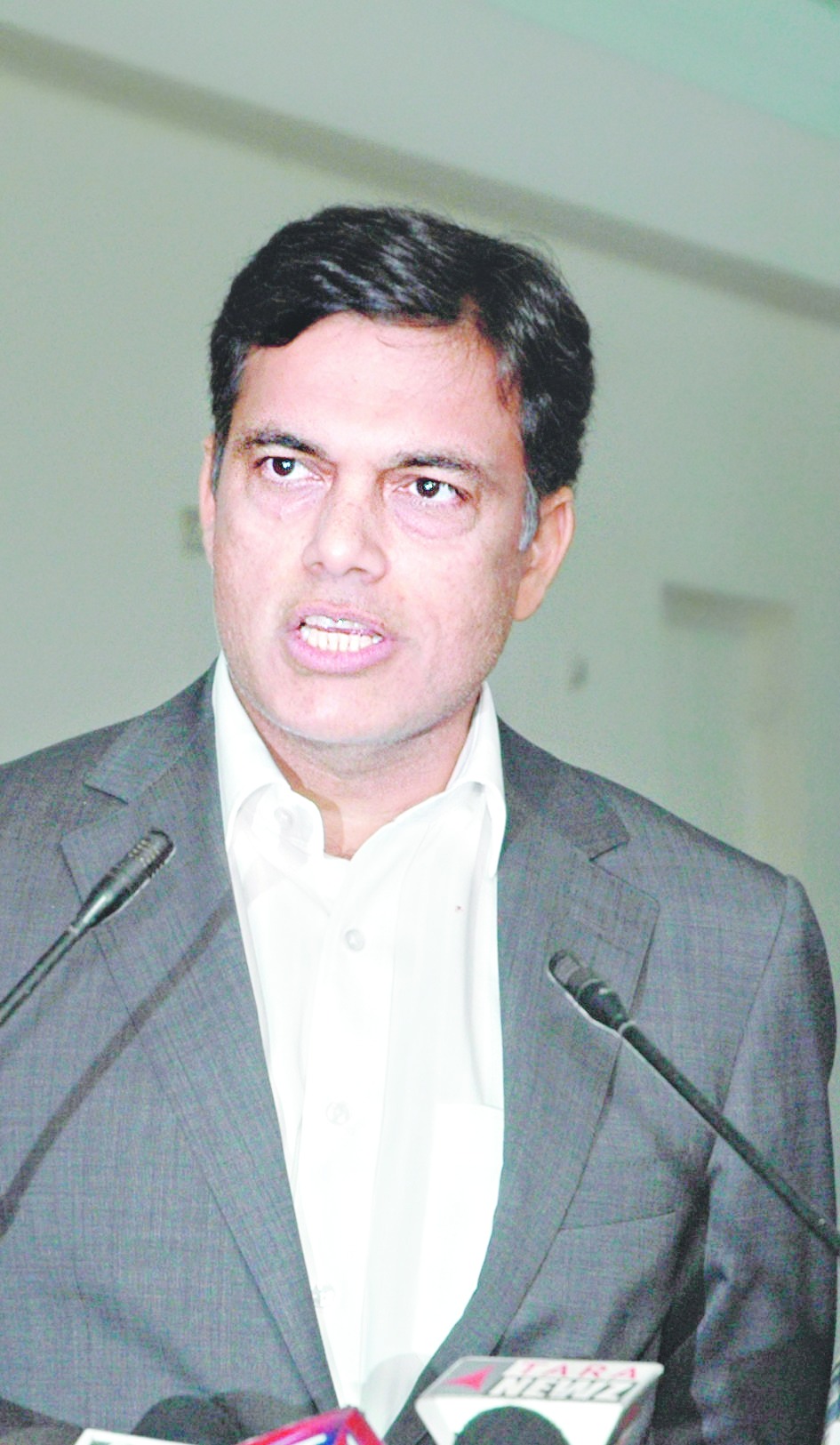New Delhi, Dec. 25: Industrialist Sajjan Jindal, who is alleged to have facilitated a meeting between Narendra Modi and Nawaz Sharif in Kathmandu last year, was once again at hand in Lahore when the Prime Minister's entourage made a surprise stopover on the way back from the two-day summit talks in Russia.
"In Lahore to greet PM Navaz Sharif on his birthday," Jindal tweeted today.

According to a book written by journalist Barkha Dutt, exactly a year ago, Sajjan Jindal - the man behind JSW Steel - had secretly organised the meeting between Modi and Sharif at a Kathmandu hotel as part of a backroom peace initiative pushed by Big Business. The ministry of external affairs has denied that Jindal had anything to do with that meeting or today's stopover.
Jindal has a vested interest in aggressively pushing the peace agenda in the sub-continent. JSW Steel holds a 16 per cent stake in a consortium led by state-owned Steel Authority of India Ltd (SAIL) that bagged the rights to an iron ore mining concession in Afghanistan's Bamiyan province in November 2011.
Another company led by Sajjan Jindal, JSW Ispat, holds 8 per cent in Afghan Iron & Steel Consortium (AFISCO). Brother-in-law Sandeep Jajodia, who controls Monnet Ispat and Energy, holds 4 per cent in the joint venture.
Interestingly, Jindal's brother and Congress politician Naveen Jindal owns another 16 per cent in the mining consortium. Analysts say the private steelmakers together hold 44 per cent in AFISCO, with the rest held by SAIL.
Former Afghanistan President Hamid Karzai's cabinet had picked the Indian consortium as the preferred bidder for three of the four blocks in Hajigak. The mine has the world's second largest reserves of iron ore, estimated at 1.8 billion tonnes.
The project has been stuck for over four years because Jindal and SAIL have not been able to persuade the Pakistan government to allow the transport of the Hajigak iron ore deposits by road to Karachi. The grand plan is to ship the iron ore from Karachi to the western and southern ports of India for use by Indian steel mills, including JSW.
The alternative is to transport the Hajijak iron ore to Russia and bring it back to India, which will make it unviable for Indian steelmakers who have been battling cheap steel imports from China.
Tea-party diplomacy has been Jindal's great forte. In May last year, he was able to persuade Sharif to come to his house for tea when the Pakistan Prime Minister visited Mumbai.
It is difficult to say whether the unscheduled stops in Kabul and Lahore today were used as an opportunity to push for rights of safe passage for Afghan iron ore to India via Pakistan.
The support that Pakistan lends to terror groups which operate in Afghanistan, including the Haqqani network, also poses a security challenge to long-term mining operations in the central Bamiyan province where the mines are located.
The buzz in the corporate grapevine is that the Jindals have a very deep commercial interest in Afghanistan, which is why they are so closely involved in the back-channel efforts to promote peace between India and Pakistan.
Several Indian companies, which have invested huge sums in gas-based power plants and fertiliser factories, are also keen that an American-backed gas pipeline project - TAPI (Turkmenistan-Afghanistan-Pakistan-India) - also gets off the ground. The proposed pipeline will bring cheap gas from former Soviet-bloc countries in Central Asia to north India.
Analysts say the pipeline project could remain a pipedream like the Iran-Pakistan-India pipeline unless India and Pakistan are able to cement an agreement to allow safe passage for gas from Central Asia to India via Pakistan.
This is not the first time that corporate honchos have been used in back-channel diplomacy. Earlier Dhirubhai Ambani's trusted aide, R.K. Mishra, had played an important role in Indo-Pak diplomacy when Atal Bihari Vajpayee-led the NDA government.
Reliance owns the world's largest oil refinery in Gujarat and analysts had then speculated that a three-way deal could allow it to import cheap Iranian crude and gas for its refinery in Jamnagar.










